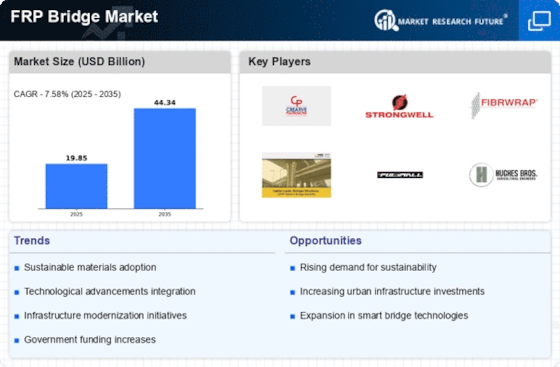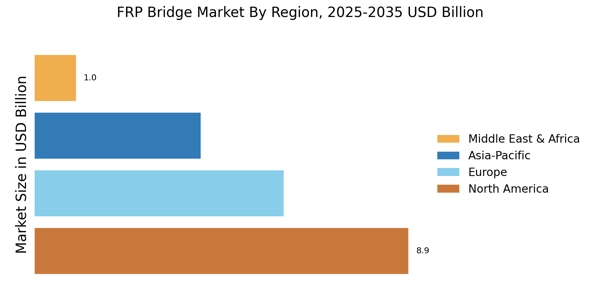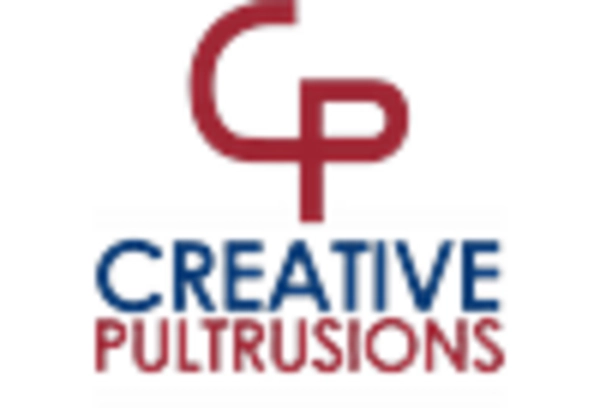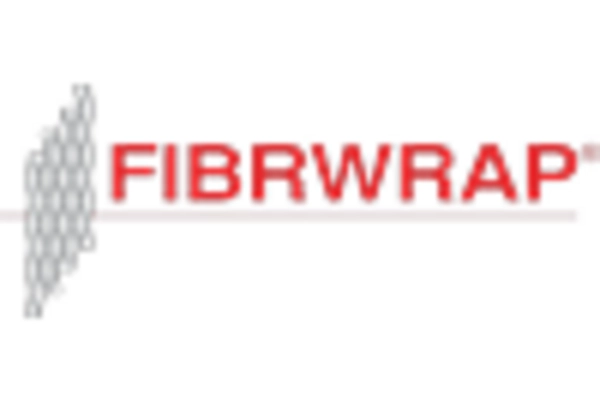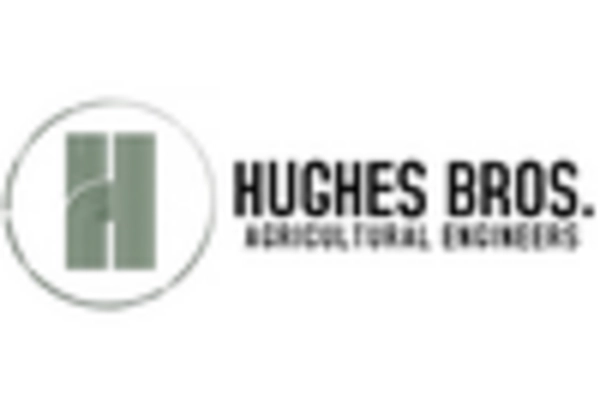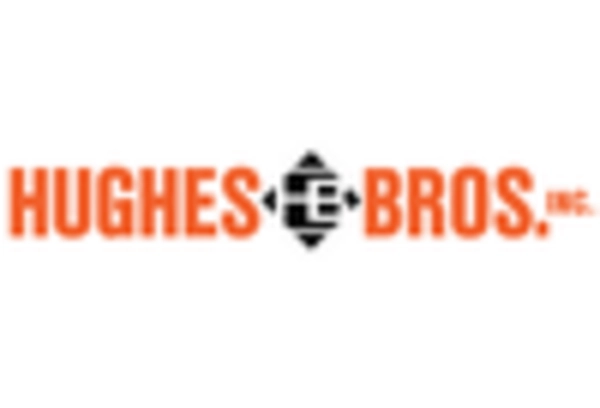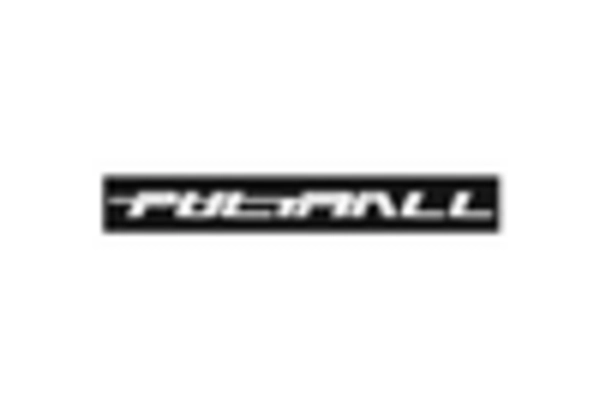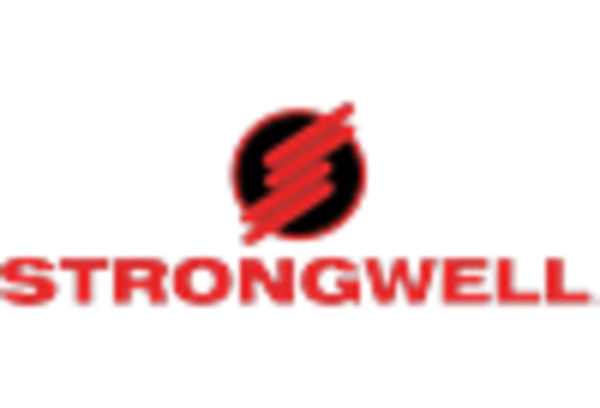Technological Innovations
Technological advancements in materials science and engineering are likely to propel the FRP Bridge Market forward. Innovations such as improved manufacturing techniques and enhanced material properties are making FRP bridges more appealing to engineers and architects. For instance, the introduction of advanced composite materials has resulted in bridges that are not only stronger but also lighter, facilitating easier installation and reduced transportation costs. Market analysis indicates that the integration of smart technologies, such as sensors for real-time monitoring, is becoming increasingly common in FRP bridge designs. This integration could enhance safety and longevity, thereby attracting more investments into the FRP bridge sector.
Sustainability Initiatives
The increasing emphasis on sustainability within the construction sector appears to be a pivotal driver for the FRP Bridge Market. As environmental concerns gain traction, stakeholders are increasingly seeking materials that minimize ecological footprints. Fiber Reinforced Polymer (FRP) bridges, known for their lightweight and corrosion-resistant properties, align well with these sustainability goals. The market data suggests that the adoption of FRP materials can lead to a reduction in maintenance costs by up to 30%, thereby enhancing the overall lifecycle of infrastructure projects. This trend indicates a shift towards more sustainable construction practices, which could potentially bolster the demand for FRP bridges in various regions.
Urban Infrastructure Development
The ongoing urbanization and the corresponding demand for robust infrastructure are driving the FRP Bridge Market. As cities expand, the need for efficient transportation networks becomes paramount. FRP bridges offer a viable solution due to their rapid installation capabilities and durability. Recent data indicates that urban areas are projected to grow by 2.5 billion people by 2050, necessitating significant investments in infrastructure. This surge in urban population is likely to create a substantial market for FRP bridges, as they can be deployed in various settings, including pedestrian walkways and vehicular crossings, thus addressing the diverse needs of urban planners.
Government Regulations and Incentives
Government policies aimed at enhancing infrastructure resilience and sustainability are influencing the FRP Bridge Market. Many governments are implementing regulations that favor the use of advanced materials in public works projects. These regulations often come with incentives for using environmentally friendly materials, such as FRP. For example, some regions have introduced tax breaks or grants for projects that utilize sustainable construction practices. This regulatory landscape suggests a growing recognition of the benefits of FRP bridges, which could lead to increased funding and support for their adoption in public infrastructure projects.
Cost-Effectiveness and Lifecycle Benefits
The cost-effectiveness of FRP bridges is emerging as a crucial driver for the FRP Bridge Market. While the initial investment may be higher compared to traditional materials, the long-term savings associated with reduced maintenance and extended lifespan are compelling. Market studies indicate that FRP bridges can last up to 100 years with minimal upkeep, significantly lowering lifecycle costs. This financial advantage is particularly appealing to municipalities and private developers who are increasingly scrutinizing budget allocations for infrastructure projects. As the economic benefits of FRP bridges become more widely recognized, their adoption is likely to increase, further stimulating market growth.


